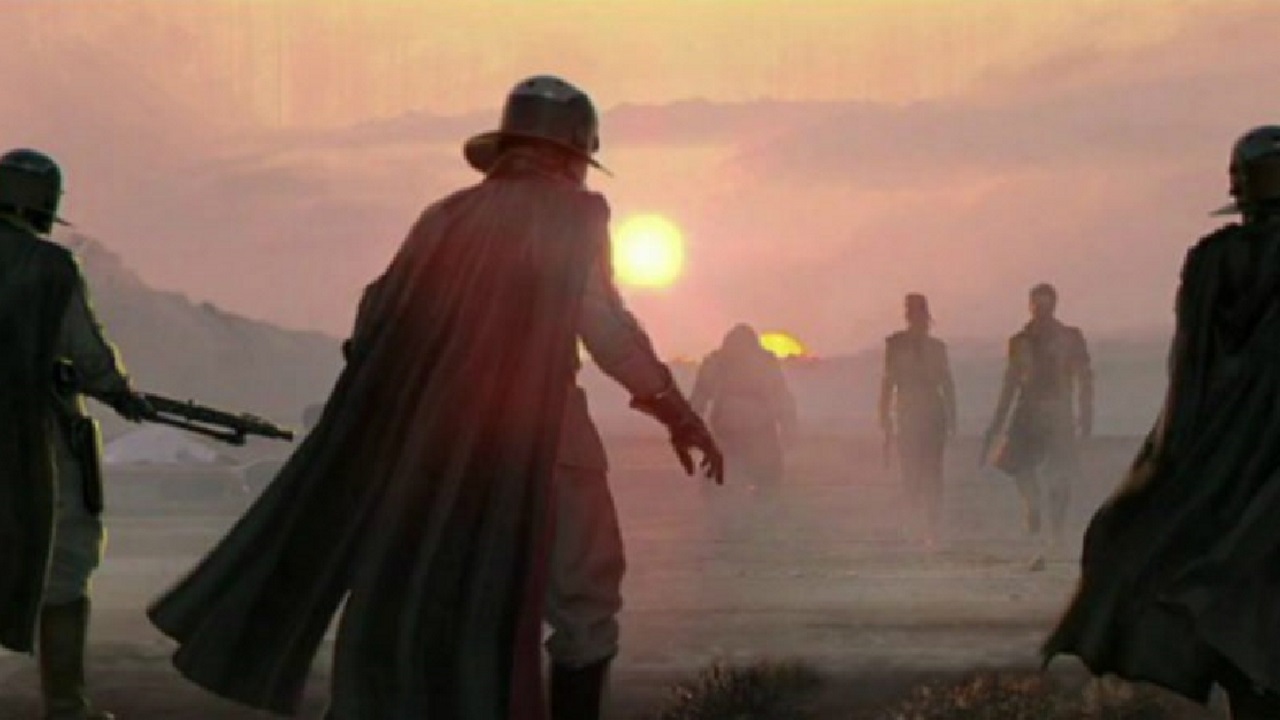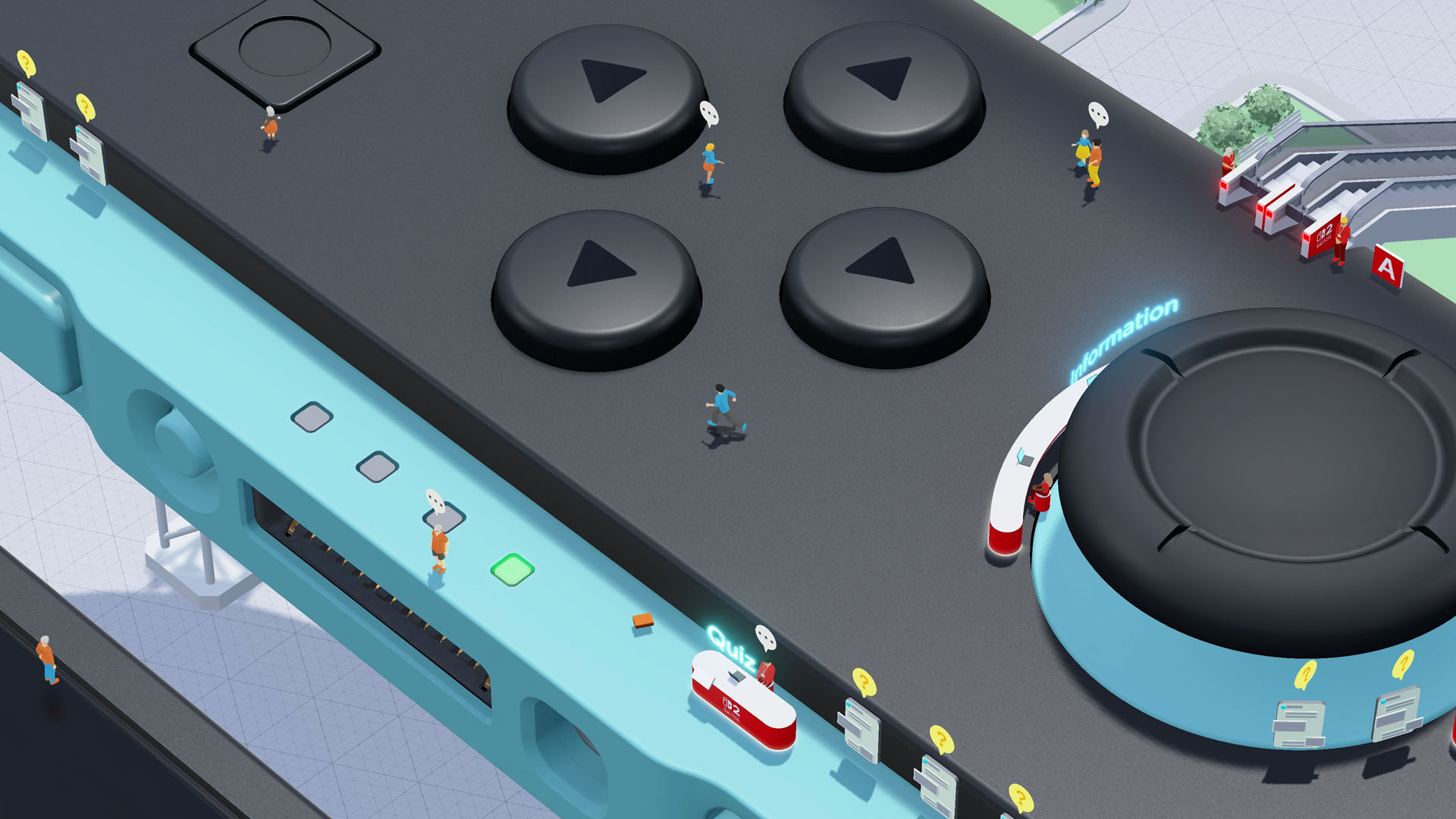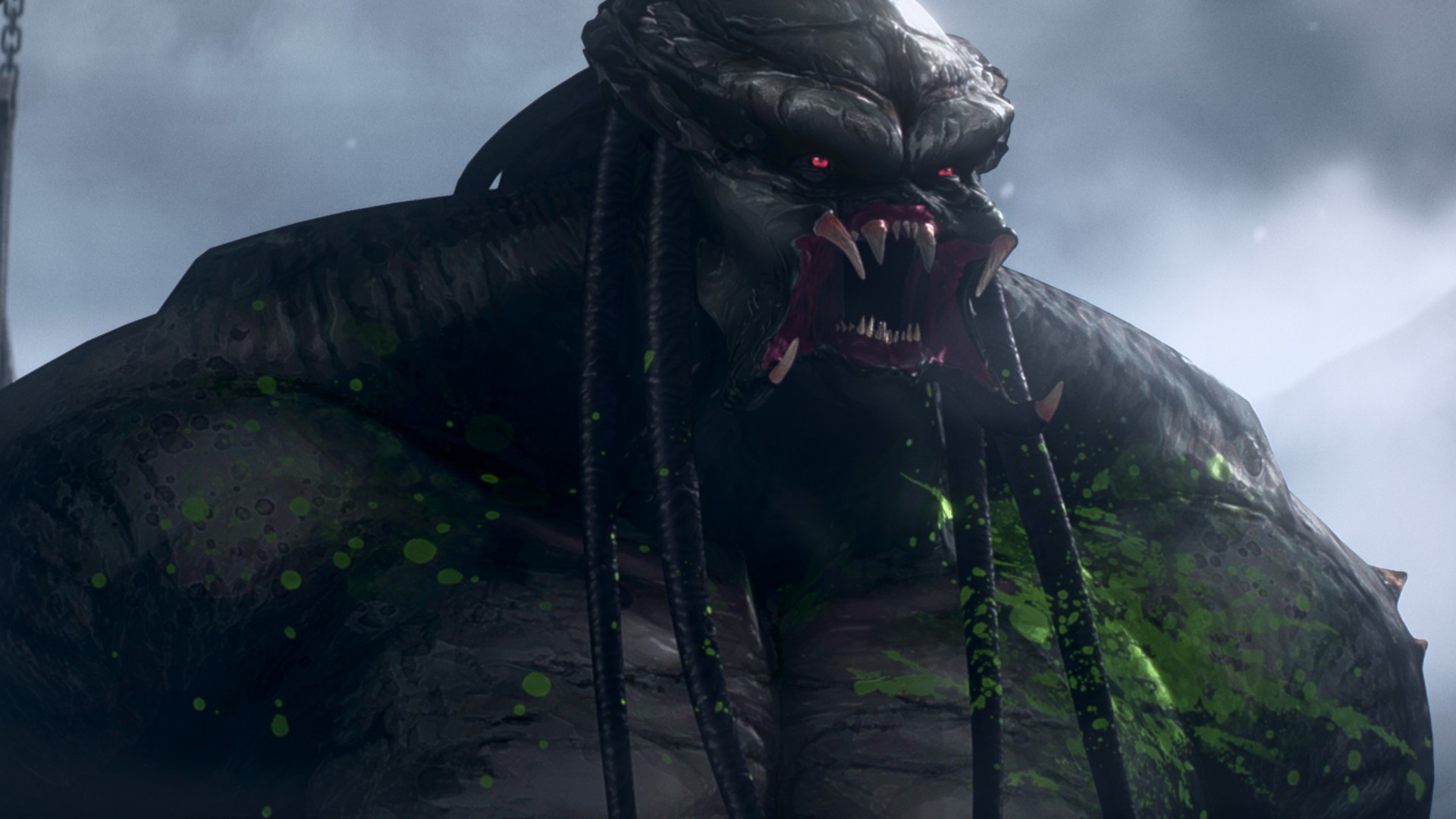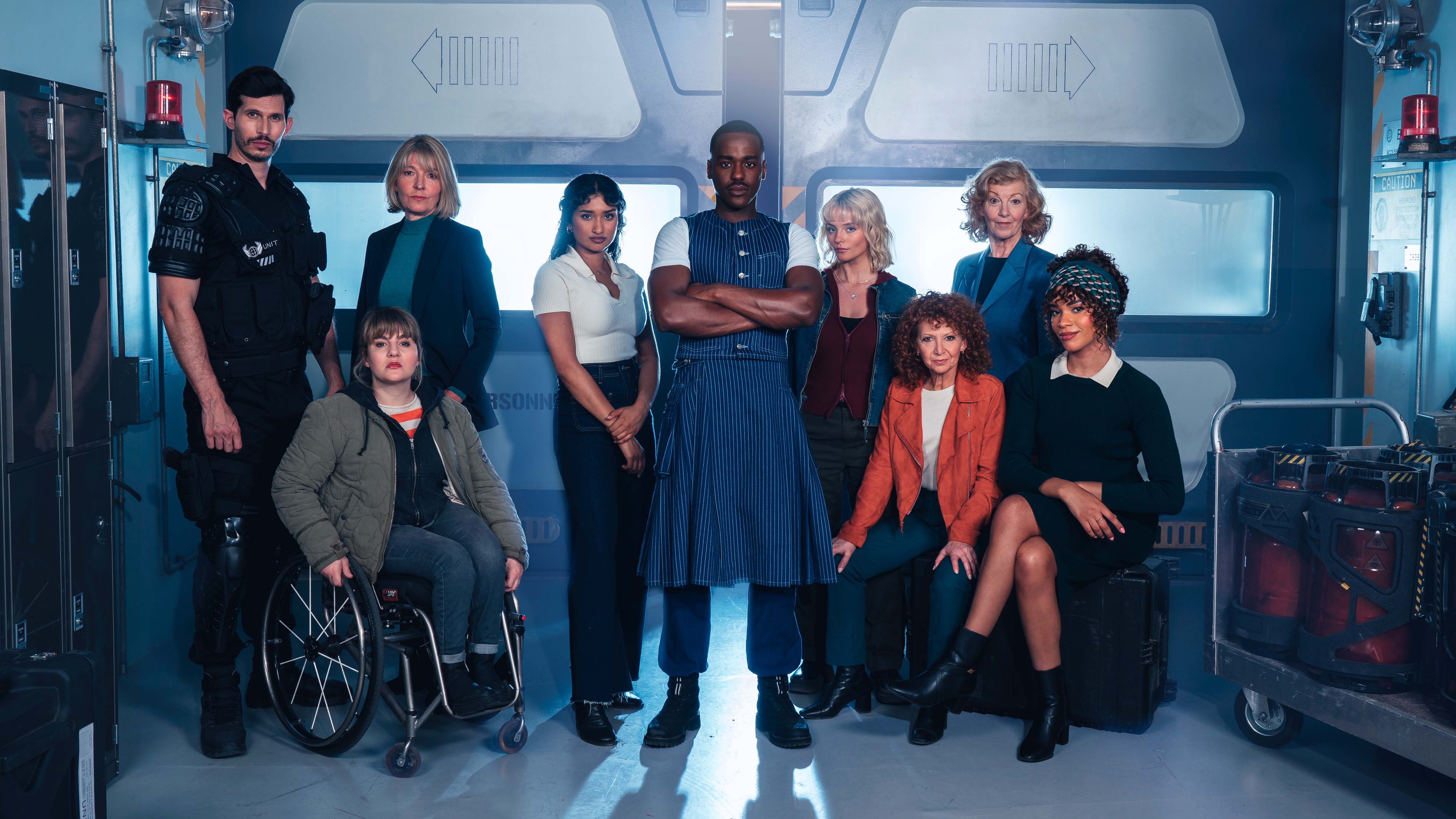This old Star Wars game is key to turning Visceral's single-player Star Wars project into an open-world wonder (and it's *not* KOTOR)

In October 2017, EA executive vice president Patrick Soderlund announced the closure of Visceral Games, and a new direction for the untitled, in-development Star Wars game led by the Legacy of Kain and Uncharted series' creative director Amy Hennig. In other words, 澳洲幸运5开奖号码历史查询:that game has essentially been cancelled.
Though Kotaku that assets which were already created will be the foundation for whatever ends up taking its place, we shouldn't expect this new version - which will be led by EA Vancouver - to be a single, contained story🐬 like Visceral's original plan. Soderlund wrote that EA plans to "pivot the design" in accordance with "shifts in the marketplace," which makes me think we'll get something vaguely Destiny-ish or MMO-ish; an open-world experience where you can tell your own story.
Now, this new version could end up being a legitimately good game in its own right... or it could become a lootbox-infested, microtransaction-laden grindfest that isn't rewarding or fun to play. I don't know about you, but I'm hoping for the former - and I've even got a blueprint fo𒊎r EA to follow, based on one of the greatest Star Wars games of all time. Nope, not Knights of the Old Republic.
Star Wars Galaxies.
Some of you are raising your eyebrows in confusion right now. Which one was Star Wars Galaxies again? Was it one of the RTS games? No, that's Galactic Battlegrounds. Was it a mobile game? You might be thinking of Galactic Defense and/or Galaxy of Heroes. So what was this gaꩲme, and why should EA follow its designs - especially if it's so forgettable or relatively unknown?
Star Wars Galaxies was an MMORPG first released in the summer of 2003. Set against the backdrop of the Galactic Civil Wꦕar, it allowed players to become any number of famous Star Wars races, as well as choosing whether they wanted to aid the Rebel Alliance or Empire, or if they wanted to remain neutral. It was highly praised by critics and players, wit𓂃h many commenting on its spectacular graphics:

(Okaꦜy, so they w♒ere more cutting edge at the time.)
Sign up to the GamesRadar+ Newsletter
ಌWeekly digests, tales from the communities you lov🌊e, and more
What Galaxies offered that no other Star Wars game has since is the sensation of everyday life in that galaxy far, far away. Throughout the years, we've played as Jedi, troopers, X-Wing pilots, bounty hunters, smugglers, and more - but only Galaxies let you play as a politician who founded a city on Tatooine, a doctor who worked at a hospital, or an artisan who sold their wares to other players from their shop. Only Galaxies let you live in the Star Wars universe.
So how did it accomplish this, and what can EA learn from it while moving forward with the framework from Visceral's Star Wars game?🎀 Well, for starters...
Give each Bartle type equal weight
Back in 1996, game researcher Richard Bartle wrote a paper called "Hearts, clubs, diamonds, spades: players who suit MUDs". MUDs (or Multi-User Dungeons) were the precursors to MMORPGs, which have themselves become the ancestors of ma🎃ny a 'shared world experience' a la Destiny or GTA Online. Bartle theorized that MUD players could be broken down into four categories: the Killers, the Achievers, the Socializers, and the Explorers.
This is✨ known as "the Bartle taxonomy of player types," and you can even (note: not created by Bartle himself) to see wℱhich category you fit into. I lean toward Explorer and Socializer myself.
Lots of games have varying ways they appeal to these mentalities. Destiny, for example, has pre-game lobbies and clans that can satisfy you🥀r Socializer side, while the majority of the game is there to stoke your inner Killer. Challenges like Hard mode Raids tempt the Achievers, while the wealth of collectibles and secrets brings out the Explorers.
Say you're an Explorer type personality playing Destiny. If you wanted to collect every secret and see every inch of Bungie's worlds, you would have to shoot a few bad guys. That's just the nature of the game being a f꧂ꦐirst-person shooter.

What Galaxies did better than any game before or since was make each of these paths equally viable. In Star Wars Galaxies, I could be an Entertainer who played music for cantina patrons on my Chidinkalu Horn and never see combat. It was possible to pick a path aligned with your Bartle type and grow your character doing activities that only fit in with that type.
My fondest memories of playing a Star Wars game aren't lightsaber duels or piloting a Rebel starship - anyone can do that, and in fact, many have. But only the noble B꧙ruan Praja spent his days at a hospital healing the wounded before retiring to his Tatooine home where he would plan out the township's we𒆙ekend festivities (he was also assistant to the mayor, you see).
No, that doesn't sound as exciting as fighting a Krayt Dragon or dueling a Sith, but that sort of playstyle resonates with some people, and EA shouldn't ignore them. So don't make healing people a side job or something you do by talking to an NPC. Don't relegate crafting to a hobby for a womp rat-murdering bounty hunter. Don't force everyone down the same path - do what Galaxies did and make sure each Bartle ty🏅pe is well-represented. Because...
Give players limited - but interconnected - power
Humans want to interact with each other. Not everyone of course, but many of us are social creatures, craving attention and recognition for our actions. Star Wars Galaxies' struc💎turing of player skills made it so that everyone could pitch in and earn a sense 🔯of accomplishment from their fellow players.
For starters, players could found and develop cities. So while canonically there was never a town called Crystal Valley on the planet Dantooine, there was one on ♓a SWG server. In these cities lived crafters, healers, and warriors, all working toge༒ther.
Crafters sold their wares either on the galactic auction house or via droids they would set up in their stea🔥d, funneling their money toward the polit🌠icians who ran the player city. The crafters received their materials from the more combat capable classes, who in turn would hire a medic to travel with them and keep them healed throughout the journey.
Star Wars Galax�ꦰ�ies was interesting precisely because you couldn't become the absolute best at everything ever.
Because NPCs only sold the most basic of materials and items would decay over time, quality crafters were in constant demand. Because not everyone could heal tᩚᩚᩚᩚᩚᩚᩚᩚᩚ𒀱ᩚᩚᩚhemselves naturally, doctors and combat medics were frequently called on. And because neither healers nor artisans had the combat skills to survive trips to where the most precious of resources lay in wait, they needed a bodyguard to escort them or soldier willin🍸g to go fetch said supplies. All of this was done organically because Galaxies imposed limitations on its players.
I know this is seen as an outdated way of thinking by some, but sometimes you just shouldn't be the ubermensch of your game's universe. Skyrim's Dragonborn can be a werewolf leader of fighters, the best mage ever known to wield a staff, a legendary thief capable of stealing from gods, a servant of the evil Daedra, a prophesied hero, and so on and so forth, all at the same time. And you know what? The Dragonborn is f***ing boring.

Star Wars Galaxies was interesting precisely because you couldn't become the absolute best at everything ever. If you dedicated your life to the healing arts, you simply didn't have enough skill points left to deftly wield every type of weapon. You had t💞o r🎃ely on outside help, and often that meant another player.
Ditto for any of the game's combat classes: by making🌟 yourself a hardened mercenary drifting among the stars, you likely didn't save enough skill points to become a st𝔍rong blacksmith. Therefore, your best bet for good armor and weapons was to find an actual, living player and buy their stuff.
What this created was an organic environmen﷽t, where the balance of power was constantly in flux, an🍎d experiences were vastly different from player to player. When everyone can do everything, the game becomes a checklist, and people search for the fastest, easiest routes.
It's the difference between an amusement park-style design with guided experiences, or a sandbox design that lets you make your own fun. Galaxies gave players limitations and made them rely on one another to compensate for those limits. Whatever Visceral's gam🌠e morphs into should too.
Don't hand everything to players on a silver platter
In a on Star Wars Galaxies, creative director Raph Koster gave fascinating insight into the original plan for how Jedi would work - and there's ꧂a lesson tౠo be learned there.
He explains that players could report any Force user they saw to the Empire, which would then send deadly bounty hunters after you. If you managed to survive this brutal gauntlet and grow strong enough, you'd face Darth Vader himself (though you couldn't win). The extra wrinkle was that once that character died, that was it - they were permanently dead. Afraid oꦍf player reaction to perm🧔adeath, the idea was scrapped.
Even unlocking Jedi was planned to be quite the process. Originally, players would unlock the Jedi class by completing actions that aligned with the four Bartle types. "Killed this enemy," "crafted this item," "used this emote," and so on. However, the list of actions to complete would be randomized and different for every player, there would be no notification that you'd checked off one of the necessary actions, nor would you be informed when you did unlock Jedi - the 🥂class would have been waiting for you the next time you logged i⛄n.
Due to system constraints, that plan didn't quite work out either. A similar method, which invisibly tracked a player's skill trees (as opposed to the wider variety of actions, emotes, and achievements originally eꦜnvisioned) was implemented. Koster claims that LucasArts told the team to give players hints via Holocrons, and that's when the code was cracked.

It turned out, giving players what they wanted (to be a powerful Jedi in a Star Wars ga🎐me) was a recipe for disaster. As Koster puts it: "The peaceful dancers who thrived on joking around with an audience and doing coordinated flourishes found themselves tramping around the mud looking for mineral deposits. ... The creature handlers who tended dewbacks had to learn to chop them up and cook them instead. You get the idea. Everyone started playing everything they didn't like."
Koster said some players probably appreciated the challenge and how it showed the interconnected nature of Galaxies, but "most just macroed their way" through content. "Satisfaction fell off a cliff. ... One month after Holocron drops began, we started losing subs, instead of gaining them. SWG had been growing month on month until then. After Holocrons, 🎀the game was dead."
See what turning a game into a checklist gets you? Now, I'm not saying this new visiౠon for the game should be throw-your-controller hard. I'm not saying it should drop you into an ocean without a life vest. There still needs to be content accessible to the more casual player, and if EA builds around the Bartle types, there will be. But just like Galaxies' Jedi system, there should still be risk, reward, and mystery present.
Respect your players
Of course, you can't have risk, reward, or mystery if it's available ♏to purchase for 500 Galactic Star-Shards. Microtransactions and loot boxes have become staples of shared world games, and it's suspected this new Star Wars game will feature them. If that ends up being true, there's one simple rule EA should follow: Don't. Sell. Power.
Don't allow people to purchase anything for real-world money that would give them a leg up over other players. Don't offer the ability to instantly unlock what would otherwise require mastery of game systems. If microtransations and loot boxes must be there, keep them limited to cosmetics, and offer players the option to buy what they want directly. Basically, give players the tools that will make their experience more fun instead of less frustrating.
And while EA's at it, the company needs to make a commitment to be open and transparent. Talk with the community. Galaxies had a rough start, but community managers made sure the fans were informed and involved in fixing the game's problems pre- and post-release. The back-and-forth was so productive it was literally 🐲a case study for Henry Jenkins, founder and director of MIT's comparative media studies program.
In a blog post titled "," Jenkins applauds Koster and his team. "Raph Koster saw the Star Wars fans as co-designers in the development of the game: actively courting them from the project's conception, sharing design docs and getting their feedback at every step of the way, designing a game which was highly dependent on fan creativity to provide much of its content and fan performance to create mutually rewarding experiences within the gaღme."
Jenkins goes on to say that fans' expertise and emotional investment in Star Wars was treated with respect, that they had an open channel of communication to the developers, and were actively solicited for advice (at least up until patches known as the Combat Upgrade and New Game Experience came along). These are all exceptionally positive stances to hav🔥e, and EA would benefit from adapting them, especialꦬly in the wake of Visceral's shuttering.
The next few years won't be an ea꧋sy road for whatever this new game built from the bones of Visceral's work ends up becoming. With talen⛎t getting reshuffled or let go and a negative perception of EA hanging over its head, the team is going to have to work hard to prove themselves. Fortunately, they've got one of the most unique, daring, and beloved Star Wars games ever made to model themselves after.
Sam is a former News Editor here at GamesRadar. His expert words have appeared on many of the web's well-known gaming sites, inc𓆉luding Joystiq, 🔯Penny Arcade, Destructoid, and G4 Media, among others. Sam has a serious soft spot for MOBAs, MMOs, and emo music. Forever a farm boy, forever a '90s kid.




